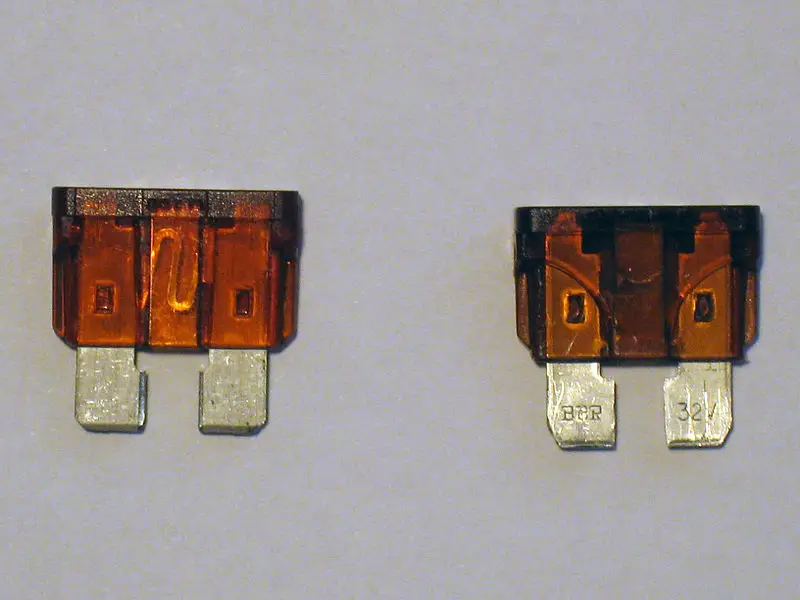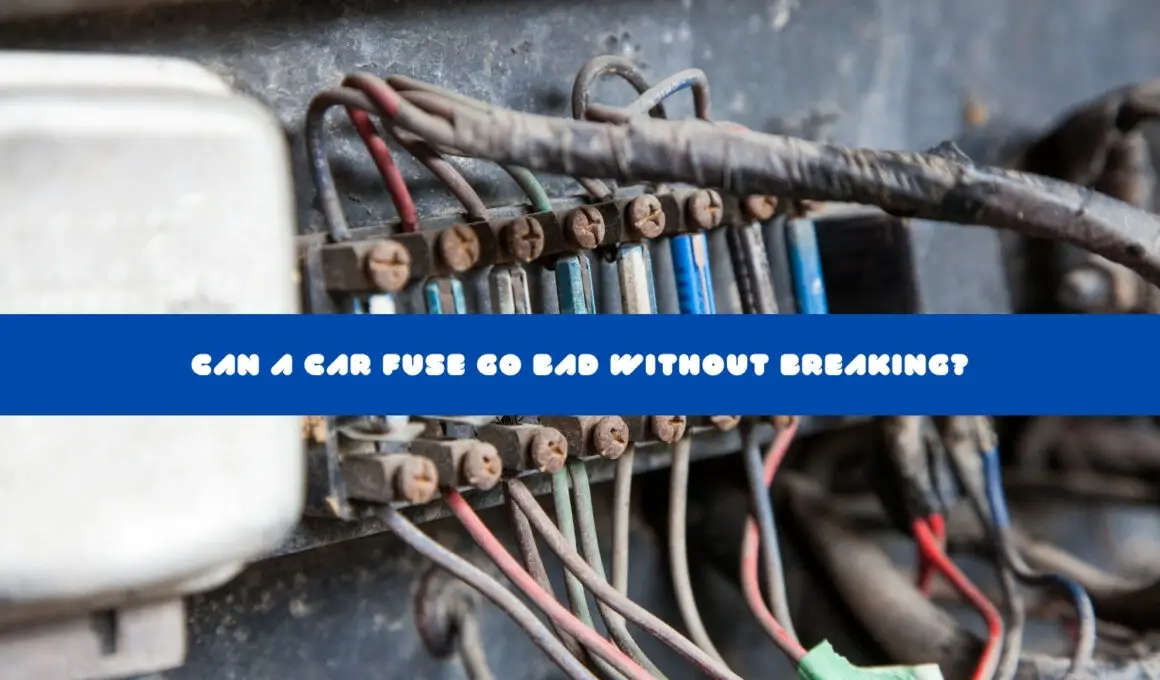In This Article Show
Car fuses are sort of safety devices in a car’s electrical system that protects the electrical components from blowing up. Technically, it saves everything in your car with a wire from getting toast by the excess current or extremely low current in some cases.
When an electrical surge or overload passes through a car fuse, it melts or gets broken to stop the current from reaching the car’s electrical circuit. So in a way, it’s like a sacrificial device.
Can a car fuse go bad without breaking? Yes. Although it rarely happens, a car fuse can go bad without it breaking. In very rare cases, there might be a break in the metal strip from the terminals inside the fuse, due to vibrations or a manufacturing defect. Also, in rare cases, corrosion due to moisture can cause a fuse to go bad without breaking.
Cars, usually feature about two fuse boxes that contain different fuses, with other amps, used to protect specific electrical components of the vehicle from harmful electric currents.
When a fuse gets broken or goes bad in any device or machine due to a harmful current, it literally just served its purpose by protecting the whole thing from getting blown up.
However, when this happens in a car, asides from having to change the broken fuse, there might be a need to have the electrical system of the vehicle checked.
A broken car fuse might be a sign of trouble or bad wiring somewhere that needs to be fixed. This means changing the bad fuse might just fix the problem temporarily.
NEW: Is It Safe To Drive With A Broken Brake Line?

Why Do Car Fuses Go Bad?
Here are some reasons why car fuses go bad.
1. Excess Current
Because of how fuses are designed, the most common thing that can make them go bad is when a harmful current passes through them.
Once there’s an electrical overload in a car’s electrical system, the fuse blows up to prevent any further damage to the car.
2. Damaged or Wrong Wiring
Another reason a car fuse can go bad is if there’s a damaged or wrong wire connection in the car. Not just in cars, but in every other device and machine.
When there’s an error in the wiring of any electrical component of the car, it can cause the fuse of the car to get broken and in this case, changing the broken fuse won’t fix the problem.
3. Corrosion
Although a fuse going bad due to corrosion rarely happens, It’s still something to look out for.
Exposure to moisture and auto fluids can cause your car fuse to corrode and go bad. It’s always very important to make sure your car’s fuse box is not exposed to moisture or fluids
What Happens When A Car Fuse Goes Bad?
There are several signs that you’ll notice in your car when you have a bad fuse.
The most common sign of a blown car fuse is that the electrical components (depending on the fuse that goes bad) in your car such as the radio, headlight, cooling system, and the like might stop working or not function properly.
Also, another sign of a bad fuse is you might have difficulties starting your car. A bad or broken fuse in certain circuits can stop your car from working. It can stop the power needed to provide the spark that starts your car from reaching the starter.
How To Check If A Car Fuse Is Bad?
In some cases, you can identify if a car fuse is bad by visually checking for burn marks or a smear on the body of the fuse. However, there might be no signs of melting or breaking on the body of the fuse in some cases.
The best way to test if a fuse is bad is to make use of a multimeter.
Multimeters are devices used to measure electrical properties such as current, voltage, and resistance.
How To Use A Multimeter To Check For A Bad Fuse
When using a multimeter to check if your fuse is bad or not, first, you need to set the multimeter to the lowest ohm setting.
After that, touch the metal terminals on both ends of the fuse with the testing leads from the multimeter. Ensure you make proper contact with each terminal.
If the fuse gives a lower resistance value after making contact with the testing leads, then the fuse is still good. However, if the resistance value doesn’t change, or it gives a higher resistance value, then the fuse is bad and needs to be changed.
It’s important to note that when testing the fuse, place it on a non-conducting surface. You can also test it by making contact with terminals of the fuse without removing it from the fuse box.
However, this should be done with the car completely turned off.










